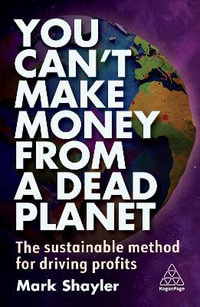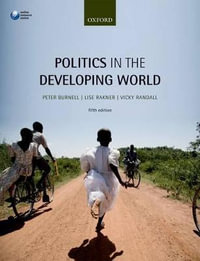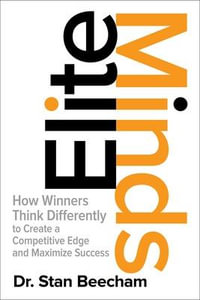"Corruption is a major challenge to Africa's growth and development efforts. According to the African Union, about US$140 billion is lost to corruption by Africa countries every year. According to the United Nations, Africa loses US$50 billion every year to illicit financial flows mostly due to corruption. African economist observed that a unit increase in corruption reduces the growth rates of GDP and per capita income by 0.75 and 0.9% and between 0.39 and 0.41% points per year respectively (Gyimah-Brempong, 2002). With this loss of resources due to corruption in Africa, the impact is on the creation of poverty and increase in income inequality, foreign direct investment, lower taxation and lower spending on infrastructure, education and health to mention just a few. Prof. Abdulai's book, Corruption and Economic Growth in Africa: The Impact on Development is thus a welcome addition to the literature on the impact of corruption in Africa's development. I hope the solutions the book has suggested will contribute to policy that will be effectively implemented, to help stop this canker and bring about development of our beloved continent. It is an excellent book that I will like to recommend to policy makers, development agencies, friends of Africa and African studies programmes." - -Honourable Gbehounou Louis Vlavonou, President of the National Assembly and Speaker of the Parliament of the Republic of Benin.
"Corruption is one of the major challenges that impedes Africa's economic growth and development. This insightful and analytic book on Corruption and Economic Growth in Africa looks at the impact of this cankerworm on the continent's growth and development through six case studies - Nigeria, Egypt, South Africa, Kenya, and Ghana. The book points to how corruption continues to deprive most African countries of much needed Foreign Direct Investments, particularly long-term investments. The book delves into how corruption negatively impacts on social infrastructure like education, roads, medicines, health facilities and erodes most gains that could have come from governance within Africa's political systems. Thus, until African countries fight and defeat corruption, their growth and development will continue to retrogress. The author offers some solutions on how African countries can go about fighting corruption, but the author cautions that if these solutions are not efficiently and effectively implemented, and supported by a consistent and persistent political will, the continent's effort in the fight against corruption will amount to naught. This important observation of the book is worth noting, especially as it is usual to find policies and decisions against corruption in many African countries. That corruption continues to thrive notwithstanding, is testimony to the weak, disjointed and ineffective implementation of the measures. This book on Corruption and Economic Growth in Africa: The Impact on Development offers new perspectives and it complements other books on understanding corruption in African countries at this trajectory of the continent's development. I highly recommend it to African policy makers, academics, students of African studies, and local and international development organisations." -Bunmi Makinwa, CEO AUNIQUEI Communication for Leadership, Former Africa Regional Director, United Nations Population Fund (UNFPA)
"From Cape to Cairo, from Freetown to Libreville, the common refrain amongst the populace-Africans, has been, "save us from the canker of corruption," which is impeding Africa's development. Prof. David Abdulai's book on corruption and economic growth and development in Africa amplifies such a refrain. Using five case studies, Nigeria, Egypt, South Africa, Kenya and Ghana, he shows how corruption has impacted the development of these countries. Thankfully, he has also offered suggested solutions to fight the canker. But that is if they are effectively applied in the implementation of these solutions. This is because corruption is like a hydra-headed snake. When you succeed in cutting one head off, another grows beside it. Albeit, we must destroy this hydra-headed snake like Heracles did with a burning touch in Greek mythology. Africans must nib corruption in the bud if it is to develop. Prof. Abdulai's book is a clarion call to action to fight corruption for Africa's development. It is a book recommended for your library and should be on the reading list of African policy makers, academics and to all fellow Africans regardless of social class or level of responsibility because this is a fight, we should all be invested in to succeed." -Hon. Madame Makale Kamara, Former Foreign Minister of the Republic of Guinea.
"Africa is losing billions of US dollars to corruption and corruption related practices annually. These funds could have been used to fund much needed infrastructure, healthcare, education and other public services to improve the lives and livelihoods of numerous sub-Saharan Africans who are living in extreme poverty on less than US$1.90 a day. According to the World Bank, those living on US$1.90 a day in sub-Saharan Africa, comprise about 40% of the population as per their measure from 1990-2018. This is about two-thirds of the global extreme poor. In this book, Corruption and Economic Growth in Africa: The Impact on Development, Prof. David Abdulai espoused position is clear; corruption is killing Africa by seriously affecting its growth and development; indeed, the transformation of the African Continent as a whole. His observation is that corruption has reached pandemic proportions on the continent and African leaders need to come together to fight the canker. But this he argues will require consistent and persistent political will, and a newly committed and determined leadership and politician of the continent. Furthermore, the effective and efficient application of the suggested solutions in the book by the Author is one of the best ways to fight corruption in Africa. It is an excellent book on corruption and economic development in Africa and I highly recommend it to the generality of political leaderships, academics, development practitioners, policy actors, and students of Africa." Prof. Dr. David Millar, President, Millar Institute for Transdisciplinary and Development Studies
"The bane of Africa's development is corruption. The African Union reports that the African continent loses about US$140 billion to corruption annually. Just imagine what US$140 billion can do in a continent characterized by numerous challenges. Apart from the fact that corruption is a key source income inequality on the continent, it causes inefficient allocation of limited national resources and thus retarding the continent's development. Corruption diverts tax revenue into private pockets, impedes domestic and foreign investments and undermines development and delivery of public service and thus impacting adversely on economic growth. As Gyimah-Brempong (2002) estimates, a unit increase in corruption reduces economic growth by between 0.75% and 0.9% and per capita income by about 0.4% every year. It is against this devastative effect of corruption on African economies that makes Prof David Abdulai's book on "Corruption and Economic Growth in Africa" timely and a must- read piece. It offers new perspectives and solutions to the challenge of corruption and Africa's development. It is a welcome addition to the literature on corruption in Africa. It is a highly recommended book to those engaged in policymaking in Africa, academics, students of African studies, and local and international development organisations. - Prof. William Baah-Boateng, Head, Department of Economics, University of Ghana Legon
























